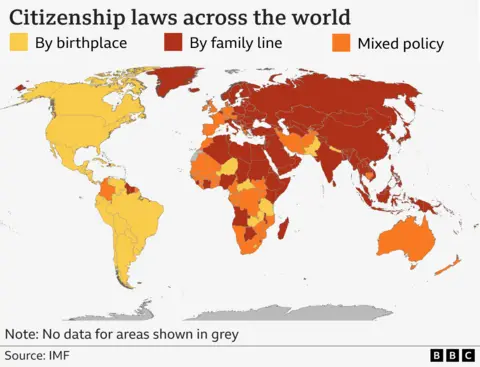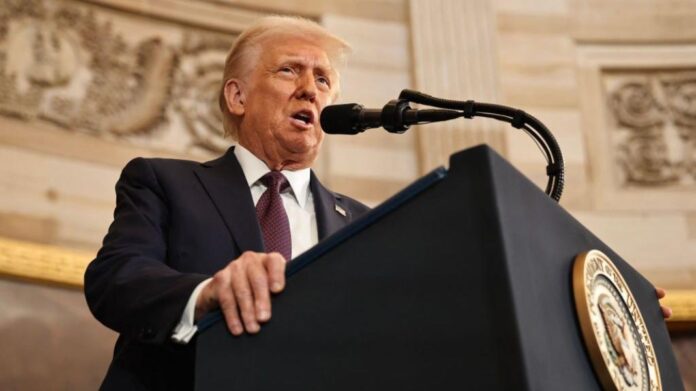The debate over birthright citizenship has come back to the forefront, with U.S. President Donald Trump trying to end automatic citizenship for those born on U.S. soil. While the U.S. has long maintained this policy under the 14th Amendment, most countries globally function differently. Citizenship policies mirror broader national identities and immigration concerns.
Divergent Global Policies
Birthright citizenship, or jus soli (right of the soil), is far from a global norm. While it remains common throughout the Americas, like Canada, Mexico and Brazil, the majority of European, Asian and African nations follow jus sanguinis (right of blood), where nationality is based on parents, not place of birth.

India, for example, once offered birthright citizenship but changed its policy in 2004 out of concern over illegal immigration from neighbouring Bangladesh. Now, at least one parent must be a citizen or permanent resident for an Indian-born child to obtain citizenship. Ireland ended unregulated jus soli in 2004, following accusations the policy encouraged “birth tourism.” Now, at least one parent must have a legal connection to the country.
Some have gone further. The Dominican Republic made birthright citizenship retroactively dependent on the legal status of parents, leaving thousands—largely of Haitian descent—stateless. This drastic action drew international condemnation and subsequent policy reforms to restore citizenship for the affected.
Read More: Does Elon Musk Have Too Much Hold on Trump’s Government?
Changing Attitudes and Legal Challenges
Proponents of restrictive citizenship policies argue that jus soli is outdated in an era of global mobility, mass migration and increasing concerns over national security. Critics, however, warn that altering birthright citizenship could lead to statelessness and legal ambiguities. In the U.S., Trump’s proposal has already met legal resistance, with many experts arguing that the 14th Amendment cannot be undone through executive order alone.

The future of birthright citizenship remains uncertain as global migration trends evolve and nations reassess how they define belonging. While some countries tighten their laws, others may eventually see the benefits of inclusivity and national cohesion through jus soli. The debate underscores a broader question: Should citizenship be a matter of heritage, geography, or something more?
Stay tuned to Brandsynario for latest news and updates











































